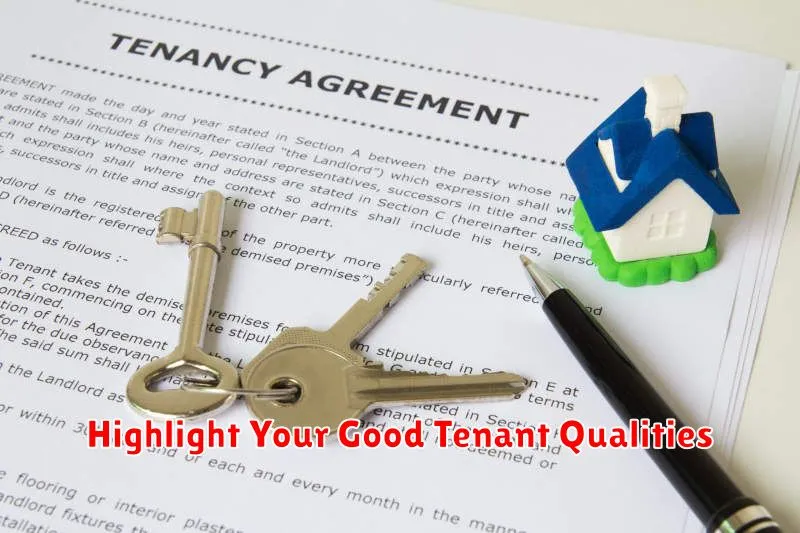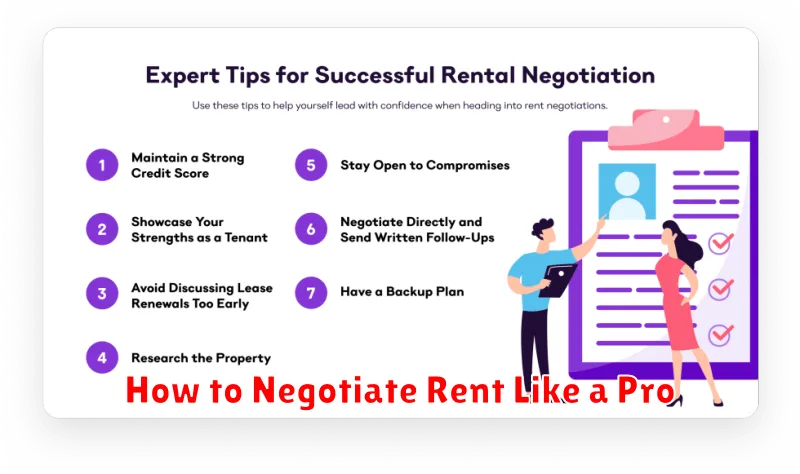Are you tired of paying sky-high rent? Do you feel like you’re stuck with an unreasonable landlord? Learning how to negotiate rent effectively is a crucial skill for anyone renting a property. Whether you’re signing a new lease or renewing an existing one, understanding the art of negotiation can save you significant money and improve your living situation. This article will provide you with proven strategies and practical tips to negotiate your rent like a seasoned pro, empowering you to secure the best possible deal.
From researching comparable rental rates in your area to understanding your landlord’s perspective and mastering the art of persuasive communication, we’ll cover everything you need to know to confidently negotiate your rent. We’ll delve into effective negotiation tactics, including when and how to negotiate, how to present your case persuasively, and how to navigate potential counteroffers. This comprehensive guide will equip you with the tools and knowledge to approach rent negotiations with confidence and achieve a favorable outcome.
Research Market Rates Thoroughly
Before entering any negotiation, arm yourself with solid data on current market rent prices. Understanding the going rate for similar properties in your area is crucial. This information empowers you to negotiate effectively and confidently.
Utilize online resources and local real estate listings to compile comparable rental data. Factor in amenities, size, and location when assessing similar properties. Knowing the market value gives you a realistic baseline for your negotiations and prevents you from being overcharged.
Highlight Your Good Tenant Qualities

When negotiating rent, showcasing yourself as a responsible and desirable tenant can significantly impact the outcome. Landlords prioritize tenants who will reliably pay rent and maintain the property.
Emphasize your consistent payment history. If you have excellent credit, bring it to the landlord’s attention. A strong credit score demonstrates financial stability and lowers the landlord’s risk.
Mention any positive references from previous landlords. A good reference speaks volumes about your respect for property and adherence to lease terms.
If you have a stable job, highlight your steady income. This reassures the landlord of your capacity to afford the rent consistently.
Lastly, present yourself as a respectful and communicative individual. These interpersonal qualities can foster a positive landlord-tenant relationship.
Offer a Longer Lease for Better Rates
Landlords often prefer the stability of a longer lease term. It reduces their turnover costs and guarantees income for a set period. This preference can be leveraged to your advantage.
By offering to sign a longer lease, such as 18 or 24 months instead of the typical 12, you may be able to negotiate a lower monthly rent. This demonstrates your commitment to the property and provides the landlord with a guaranteed tenant.
Before suggesting a longer lease, carefully consider your own plans. Ensure you’re comfortable staying in the property for the proposed timeframe. While a longer lease can offer financial benefits, breaking a lease early often comes with significant penalties.
Be Flexible with Move-In Dates
Flexibility with your move-in date can be a powerful negotiating tool. Landlords often have vacancies between tenants, and filling these gaps quickly is a priority. If you’re able to adjust your move-in date to align with their needs, you’re more likely to secure a better deal.
Consider asking about less desirable move-in times, such as mid-week or during the off-season. These periods typically see lower demand, which might give you more leverage in negotiations.
Prepare a Counteroffer Professionally
Once you’ve received the initial rent proposal, carefully consider it. If it doesn’t align with your budget or market research, prepare a counteroffer. Don’t just throw out a number; justify your proposed rent.
Outline the reasons for your counteroffer. Perhaps you’ve found comparable properties with lower rents, or maybe the property requires some repairs. Presenting supporting evidence strengthens your position. Be polite and professional in your communication. A respectful approach fosters a more productive negotiation.
Know When to Walk Away
Negotiating rent involves knowing your limits. Sometimes, despite your best efforts, you and the landlord won’t reach an agreement. Recognizing this point is crucial. Walking away can save you from a lease agreement you’ll later regret.
Before starting negotiations, determine your maximum acceptable rent. This is the highest price you’re willing to pay. If negotiations push beyond this figure, be prepared to walk away.
It can be disappointing, but remember there are other properties available. Prioritize your budget and your long-term financial well-being.
Document All Negotiations Clearly
A critical aspect of successful rent negotiation is thorough documentation. This protects both you and the landlord in case of future disputes. Keep a detailed record of every interaction.
Key items to document include:
- Dates and times of conversations (phone calls, emails, in-person meetings)
- Names and titles of individuals involved
- Specific terms discussed (rent amount, lease duration, amenities)
- Agreements reached, even verbal ones
Written communication, such as email, is preferable as it provides clear evidence. If discussions occur verbally, promptly summarize the conversation in an email and send it to the landlord for confirmation.

